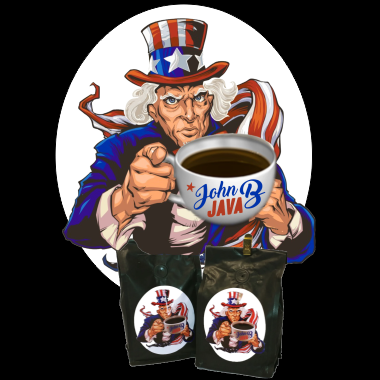 Asia Times
Asia Times By
SEOUL – North Korea test-fired missiles at roughly the same time an alleged North Korean operative, extradited from Malaysia to the US, arrived in Washington, it was revealed Wednesday.
Ship-to-ship cruise missiles were test-fired into the Yellow Sea early Sunday morning, US sources belatedly revealed in reports that were picked up and confirmed in South Korea on Wednesday morning.
Unlike tests of ballistic missiles, cruise missile tests that fly in a flat trajectory are not sanctioned. The event was downplayed by officials and US President Joe Biden brushed it off, saying “nothing has changed … it’s business as usual.”
The launches, which had previously been neither leaked nor announced in North Korean, South Korean or US media, have been widely interpreted as a signal to the Biden administration as it prepares to release its North Korea policy review.
But they may have been a response to a new, and potentially more explosive, development. South Korean news reported that the missiles were fired at 6:45 on Sunday morning. There is a 14-hour time difference between the East Coast of the US and the Korean Peninsula.
On Saturday, US time, Mun Chol Myong, 55, the first North Korean ever to be taken into US custody, arrived in America following his extradition from Malaysia on six charges of money laundering and providing sanctioned luxury goods to Pyongyang.
“The indictment alleges that Mun defrauded banks and laundered money in an effort to evade counter-proliferation sanctions imposed on North Korea by the United States and the United Nations,” said Assistant Attorney General John C Demers for the Justice Department’s National Security Division in a public statement.
“He is the first North Korean intelligence operative – and the second ever foreign intelligence operative – to have been extradited to the United States for violation of our laws.”
The investigation was coordinated by the FBI’s Counterintelligence Division, and the Justice Department thanked the “US Indo-Pacific Command and the FBI’s Investigative Operations Division.”
While the amounts Mun is alleged to have moved are small – in the US$1.5 million range – he is, according to the statement, connected to the Reconnaissance General Bureau, or RGB, North Korea’s shadowy espionage arm.
That body faces international sanctions and is of intense interest to Japanese, South Korean and Western intelligence agencies.
Adding weight to Mun’s importance, a furious Pyongyang cut diplomatic ties with Malaysia – ties that had previously survived the assassination of Kim Jong Un’s half-brother, Kim Jong Nam, at Kuala Lumpur’s international airport in 2017.
There is a potential nightmare for Pyongyang if Mun turns state evidence and spills the beans on its operatives and operations in Southeast Asia.

North Korea’s Southeast Asian playground
Pyongyang has neither distanced itself from nor denied connections to Mun. On the contrary. Not only did Mun’s wife attend extradition hearings in Kuala Lumpur, North Korea severed diplomatic relations with Malaysia last week over the affair.
Furthermore, a source familiar with the case told Asia Times that North Korea offered to pay Malaysia to free Mun. For a cash-strapped regime to pay a bribe or fine to reclaim a national hints at the diplomatic value of Mun, a self-declared businessman.
Kuala Lumpur-Pyongyang ties had earlier been strained but not broken by the extraordinary 2017 killing of Kim Jong Nam by VX nerve agent in Kuala Lumpur International Airport.
“I think Malaysia has been pretty angry about the assassination,” said Alex Neill, a Singapore-based security consultant. “I think they were embarrassed, too, as it showed the ability of the North Koreans to mount assassinations under the nose of their own domestic authorities.”
Before the killing, Malaysia had long been a favored Southeast Asian playground for North Koreans. In 2020, Reuters reported that North Koreans had been buying sanctioned military communications equipment in Kuala Lumpur.
Reuters subsequently reported that North Korean businesspeople had used Malaysia as a financial hub to channel funds to Pyongyang and that the Malaysian Central Bank had launched a probe into the matter.
None of the Reuters investigative reports mentioned Mun. But there is plentiful space for operatives, one expert told Asia Times.
“In Malaysia, it is easy to operate as there is a network of money changers and business is not as compliant as in Singapore,” said James Chin, a professor of Asian Studies at the University of Tasmania. “There is also a large South Korean community there, and for an outsider, it is hard to tell the difference.”
Chin suggested that the US dollar money laundering charge may be the tip of an iceberg, cherry-picked by Washington to fit domestic laws. He believes Mun “set up a pipeline” to Pyongyang for a range of products, from telecommunications equipment to luxury goods.
“I would guess anything under the sun – whatever the leader wanted,” Chin said. “In Malaysia, you can buy anything you need and pay cash.”

America’s new front?
Mun had been detained in Malaysia since May 2019, less than two weeks after being indicted in Washington on six counts of money laundering. His arrival in the US over the weekend suggests a new initiative.
“This is a new model for the US government: An internalization of North Korean sanctions, applying domestic laws to sanction violators,” said Go Myong-hyun, a North Korean watcher at Seoul’s Asan Institute. “Now, North Koreans involved in money laundering and dealing with US dollars will have to look over their shoulders.”
While morally murky and legally dubious renditions were a feature of Washington’s “war on terror,” the extradition process in this case was transparent.
It appears Mun will face an open trial, but US authorities may offer him a deal in order to gather maximum intelligence, which is likely of interest to the CIA, the Treasury and FBI. Mun could feasibly provide inside information on the RGB, or Bureau 39, the directorate believed to generate foreign cash for the Kim regime.
“If he is an RGB guy, or with Bureau 39, it is interesting that [the Americans] did not turn him, which could have been an option, but on balance they may have thought the risk of turning him was way too high, he could have rumbled quickly,” said Neill. “They may rate his capture as a gold mine.”
Other North Korea observers were less sure.
“I don’t think he represents an intel windfall, I am skeptical,” said Go. “I think he is just an intermediary between North Korea and Malaysia, but I’d think he knows other operators, accounts and modus operandi.”
“My take is he is not a spy. I think he is part of the civilian part of North Korean intelligence services,” added Chin. “But he is a long-term operator. My sources say he has lived outside North Korea for around 15 years, in Singapore and Indonesia as well as Malaysia.”
Neil suggested a possible plea bargain, citing the case of Singaporean-born Chinese asset Dickson Yeo. In 2020, Yeo pleaded guilty in the District of Colombia to spying on the US on behalf of China. After offering statements to the FBI, he was released following a 14-month sentence.
“He squawked like a canary,” Neill recalled. “There was an open trial, but a deal was struck.”
Two North Korean operatives caught in a 2017 sting operation in Ukraine, in which they sought to steal missile technologies, were unwilling to openly admit guilt. But North Korea, too, has suffered its share of squawkers.

Pyongyang’s vocal operatives
Despite their hardcore reputation, North Korean assets captured after bloody, botched operations have embarrassed the regime by admitting their origins and providing intelligence to South Korea.
Kim Shin Jo, the only commando captured after a kinetic raid on the South Korean presidential mansion in 1968 in which his unit was wiped out, revealed details about the operation and his unit. He now lives openly as a protestant pastor in South Korea.
Another commando, Kang Min Chul, confessed after being captured in the aftermath of the bombing of the South Korean cabinet during their state visit to Myanmar, then known as Burma, in 1983. He died in a Rangoon prison in 2008.
And spy Kim Hyon Hui (codename Mayumi) was captured in Bahrain after the terrorist bombing of a South Korean flight over the Middle East in 1987. She, too, confessed and opened up about her background in extensive debriefs. Today, she lives in secrecy in South Korea.
Mun’s alleged activities were not murderous. But in recent years, a sanctions-hammered Pyongyang has shifted from raids and terrorism to scams in third countries to provide cash and goods for the sanctioned homeland.
In this sense, the US trial could be a propaganda victory for the US.
While several diplomatic defectors have revealed information about North Korea’s money laundering, Pyongyang has denied these, and some in the South do not believe defectors, considering them prejudiced sources.
This will not be the case with Mun, who has been extradited from a third country and whose government has plainly been behind him, said one South Korean familiar with both intelligence and diplomacy.

“There is a certain reluctance on the part of experts in North Korea affairs to take testimony from defectors at face value – there is a discount on their testimony,” the source, who spoke on condition of anonymity, said. “But this is going to be different – he was caught red-handed.”
The 1983 Myanmar attack “was a great blow to North Korea’s diplomatic activities among neutral states,” the source added. The current embroglio will impact North Korea’s global standing as it will show it is “almost like a mafia organization” that is “engaged in all sorts of illegal activities.”
Regardless of what happens in a US court, the matter comes prior to the Biden administration’s release of its policy review on North Korea.
North Korea has only expressed mild – by historical standards – displeasure against the US for its scaled-back spring military drills with South Korea. Sunday’s missile launches are also no major development
“The missiles are so minor,” said Go “But at the same time, the North Koreans are clearly upset.”





















